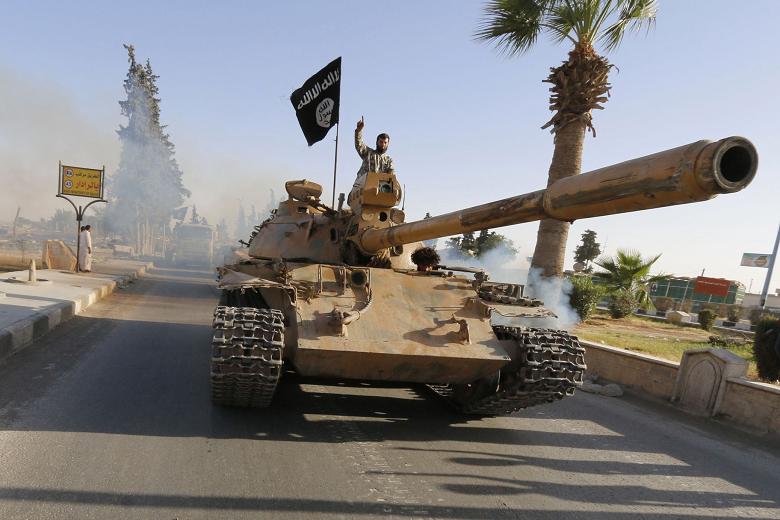Iraq’s traditional borders and spheres of influence appear to be deteriorating and shifting rapidly. Escalating sectarian violence and growing political schisms have eradicated the fragile stability left in place following the withdrawal of U.S. troops in 2011. What was initially thought to be a string of violent terrorist attacks has recently come into focus as a general uprising involving several key players. Sunni militants, along with ISIS (The Islamic State of Iraq and Syria), have found common cause revolting against the sectarian Shia-dominated Iraqi government.
Recent escalations of Sunni-Shiite tensions are considered to be the result of the government’s alleged persecution and alienation of its Sunni population. Sunni demonstrations, which have grown since 2012, largely concerned Iraqi Prime Minister Nouri al-Maliki’s increasing power. Maliki’s government, an autocratic single-sect powerbase, provoked wide-scale unrest in 2013 with the mass arrest of key Sunni politicians. United in their rejection of the authoritative figure, ISIS and other militant groups have exploited Sunni grievances, persuading many to join the insurgency against the Iraqi government.
ISIS, an extremist jihadist group, has swept through the country in recent weeks, seizing several Iraqi cities and territories as it moves towards Baghdad. An offshoot of al-Qaeda, these militants have grown in size and strength during the ongoing civil war in Syria. The group, which now challenges the authority of the two largest states in the Middle East, has become, according to the Soufan Group, a political risk consultancy, “indisputably the most effective and ruthless terrorist organization in the world.” Attracting upwards of 7,000, insurgents and Sunni sympathizers from neighboring regions, ISIS now controls hundreds of square miles where state authority has all but evaporated. As of late June 2014, the offensive has successfully captured Samarra, the strategic crossroads city of Fallujah, as well as oil-rich Mosul, and Tikrit, only 100 miles north of Baghdad.
As the crisis deepens, ISIS has adopted a worrisome online propaganda operation, encouraging the active engagement of sympathizers worldwide. Relying on social media, it has successfully recruited numerous fighters from abroad. Of the thousands fighting in the conflict, approximately half are believed to be foreigners. This new online face of modern extremism is a creative and savvy approach, appealing to young minds in North America and Europe. Speaking to the Independent, Charles Lister, an expert on terrorism, believes that ISIS has “proved remarkably adept at managing a slick, sometimes decentralized, media operation.”
According to the CSIS, 130 Canadians are believed to have joined terror groups in the Middle East, 30 of whom are suspected of joining the conflict in Iraq. The increasing radicalization of Canadians has become a serious national security concern. Last month, ISIS released a video featuring Calgary resident Farah Mohamed Shirdon, who, before burning his Canadian passport, can be heard uttering threats towards Canada and the U.S. In November, another Canadian citizen, Salman Ashrafi, was responsible for a double suicide bombing in Iraq, killing 46 people as part of an attack orchestrated by ISIS. Canada has not been the only country exporting jihadists. U.S. intelligence figures estimate that more than 100 Americans have joined the Jihad in Syria and Iraq. In Europe, the numbers are even more alarming.
EU officials believe around 2,000 citizens, from France, Germany, Belgium, and the UK are fighting overseas.
As ISIS continues to expand its network of foreign fighters, members of the international community and Western governments have responded seriously to these cases of homegrown terrorists, sharing relevant information and intelligence. In Canada, the RCMP has launched a new program designed to identify individuals believed to be at a high risk of developing extremist tendencies. Once identified, such individuals are denied passports and are monitored closely. Canadian security agencies are actively working with immigrant communities to identify potential threats and are encouraging members to speak openly with officials.
In 2012, then Public Safety Minister, Vic Toews unveiled Canada’s first comprehensive counterterrorism strategy, which includes response plans in the event of a major attack and strategies for de-radicalizing homegrown terrorists. Known as Building Resistance Against Terrorism, the strategy involves four steps that include preventing, detecting, denying, and responding to possible threats. Although Toews called Canada a leader in de-radicalization, promising to step up efforts to counter homegrown terrorism in vulnerable communities, the increasing number of Canadians fighting alongside Islamic extremists overseas has prompted some to question the success of these initiatives.
Although al-Maliki has now agreed to step down, and his successor Haider al-Abadi is making every effort to reach out to the Sunni population, this has not succeeded in changing the behavior of ISIS. It is important therefore, for Canada, and other Western countries to continually improve and adjust their counter-terrorism strategies.





